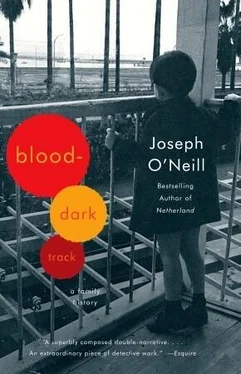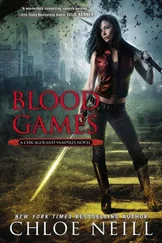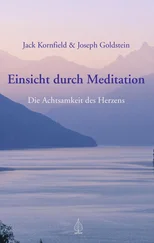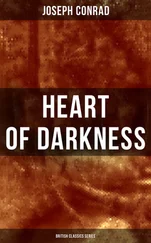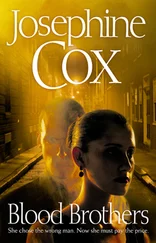Grandma said, ‘Jim was very suspicious when he came out. He wouldn’t give anything away until he knew you. But then he was always a careful man.’
Shortly after Jack’s arrest, Peig was herself picked up. She was remanded in custody in Limerick for a time and then, after her trial and conviction, imprisoned for two and a half years at Mountjoy Prison. She was both proud and blasé about the episode. ‘I never did an awful lot, only talk,’ she said. ‘They found me in possession of a broken-up gun. I didn’t know the front from the back.’
The subject of guns having been raised, I mentioned the Ardkitt gun, and then I mentioned Admiral Somerville. I told Peig that it had been suggested I ask her about it. Peig glanced at Grandma, her eyes and glasses gleaming. ‘What does it matter,’ she said slyly. ‘They’re all dead now.’ Then she mentioned three names, and it seemed to me that for a moment Grandma’s face was covered in confusion.
I was surprised, too. Jim O’Neill did not kill Henry Boyle Somerville. Neither did Peig’s husband, the man of action, Jack Lynch. Somerville’s killers, according to Peig, were my great-uncle Tadhg Lynch; Angela Lynch; and a man called Joe Collins.
‘Joe Collins?’ I said.
‘Joe was from Dunmanway,’ Peig said. ‘He used to come to us on Tuesday nights. He was a grand character. He would never tell a lie.’
Grandma spoke up: ‘Joe was a true blue. You could trust him with your life.’
Peig said, ‘Tadhg was an aggressive person, but very clever. One time he and a great friend of mine, Mrs O’Hagan, who was real racy, burned huts on the border and then went to the races together dressed to kill. Tadhg never changed over the years,’ Peig said. ‘He was a colourful character.’
‘Tadhg was one,’ Grandma agreed. She was fully composed once more.
There was a pause as Peig Lynch shifted in her chair, making herself more comfortable. Then she said, with an odd emphasis, ‘Angela was a true republican.’
I asked Grandma about Angela. ‘Angela was my sister,’ Grandma said. ‘She was perhaps four or five years younger than me. She was a great camogie player. She died at the age of 22, from septicaemia she got in England, where she worked as a nurse. When her body was returned to Ireland it was buried with full military honours by Cumann na mBan. It was the last funeral attended by Mrs Tomás MacCurtain Senior,’ Grandma said.
My grandmother and her sister-in-law began to chat about this and that.
When I spoke to Brendan afterwards, he confirmed that Tadhg and Angela and Joe Collins were the names he’d been given. Angela, he added, had taken part in the 1939 English bombing campaign, probably in the reconnaissance and/or decoy role that had no doubt been hers at Castletownshend.
Brendan also told me that his father knew that the Somerville gun had been dumped somewhere at Ardkitt. In fact, Jim O’Neill often searched for the revolver, paying particular attention to the thick walls of the farmhouse, in which he suspected the weapon had been buried. But he never found anything. In the end, the Colt.45 only surfaced by accident, when the current owner, Pat O’Neill, passed a metal detector over a hedge near the farmhouse.
When I flew back to London, I could find no mention in the historical literature of Angela Lynch, which was perhaps not surprising in view of the chauvinist slant of Irish republican self-history. There were numerous references, by contrast, to Joe Collins.
Like Angela and her brother Jack, Joe Collins served in the English campaign. Years afterwards, he went on record with a description of the near-fatal moment when his home-made bomb, packed in a suitcase and ready to be delivered to its target, exploded in his room: unlike the Hezbollah guerrilla who blew himself to bits at the Lawrence Hotel, Collins was saved by answering the door at the moment of the explosion. Not long afterwards, Collins was arrested in Manchester and sentenced to twenty years of prison. In Parkhurst Prison, he procured his official file with the help of a professional safe-cracker. The file contained a report by his prison priest, in which it was stated that Joseph Collins was a ‘very difficult case, and a confirmed Rebel — both here and in Ireland.… There’s no change in this prisoner’s political ideas.… [He] is apparently unmoved by getting 20 years P.S.… It’s most doubtful whether this man will ever lead a law-abiding life.’ Joe Collins served a total of nine years in England, but afterwards still cut an impressively confident and likeable figure. My father enthusiastically recalled ‘A tall, slim, very distinguished-looking guy, very well-dressed. He went to the States in the end, I think. I can see him standing in front of me now, standing there with a broad smile on his face.’
Finally, there was Tadhg, the senior member and almost certainly the commander of the unit — whom Grandma had once described to me as a strategist and not one to go out and do the shooting. In addition to what I already knew about him — it seemed significant, in retrospect, that he became adjutant-general of the IRA, and Tom Barry’s right-hand-man, only months after the Somerville shooting — I learned that Tadhg was great footballer, that he’d won a gold medal for excellence in his school leaving certificate, that he never drank, that he managed greyhound tracks at Shelbourne Park and Harold’s Cross in Dublin, and that he died suddenly of a heart attack, at the age of 55, while watching the harecoursing. To my father, Tadhg figured as an emblem of academic prowess. Kevin found his uncle a thoughtful and kindly man. Kevin liked and respected his uncle so much that my full name is Tadg Joseph O’Neill.
I didn’t really know what to make of this strange link — except, perhaps, that it gave me a peculiar justification for grappling with what my namesake Tadhg had done. This was emboldening, because once the main facts of the shooting were known to me, I was assailed by self-doubt. What had I ever done to earn the right to pronounce, favourably or unfavourably, on the actions of my elders? Who was I to sit in a judicial capacity? My misgivings were exacerbated by the paradoxical fact that Peig Lynch’s act of disclosure, which had been actively facilitated by my grandmother and uncle, effectively constituted my family’s authority to reveal its role in the Somerville killing. Such authorization was unlikely to mean that the family now wished to disassociate itself from the killing; if it signified anything, it was that the passage of years had finally made it possible for us to publicly lay claim to it. It was relevant, here, that even though my grandfather played no active part in the shooting, it was difficult to disentangle him from it. He was the only connection between the killers and Ardkitt, and there was no reason to doubt that, if called on, my grandfather would have used on Admiral Somerville the gun dumped at Ardkitt.
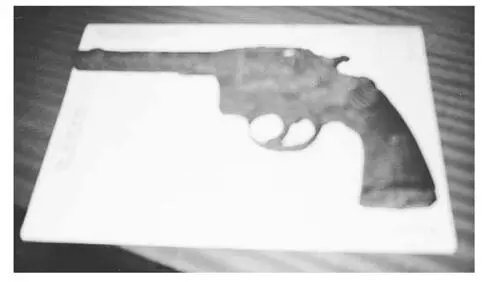
The Colt.45 used to shoot Admiral Somerville
As I chewed on what to do, it occurred to me that in any event I should contact the deceased’s family and offer to disclose to them the identities of his killers before I made them public. Christopher Somerville responded promptly to my letter. He wrote back, ‘I have no wish to know who shot my great-uncle, and those who were really affected by his death (his widow and children) are all dead and I could not speak for them. Sorry!’ And Mrs Salter-Townshend wrote, ‘I am not interested in knowing the names of the murderers of Admiral Somerville, who you say are now dead. It serves no useful purpose, being “water under the bridge” now.’ In a slight undermining of this last assertion, she combatively added, ‘I am sure that anyone who knows anything about it, or who knew Admiral Somerville would agree that it was a most cowardly act to shoot an unarmed and much loved and respected man for no apparent reason. He was a second cousin and friend of my Father’s, they had been at school together as small children. The whole village and parish were profoundly shocked and upset by the murder as both he and his family were very popular and on good terms with everyone.’ Mrs Salter-Townshend continued:
Читать дальше
Конец ознакомительного отрывка
Купить книгу
